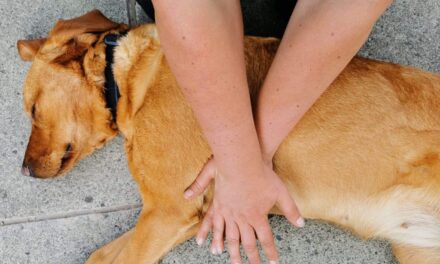In a pivotal move towards safeguarding the health of pedigree dogs, The Kennel Club has officially sanctioned a new DNA testing scheme for dyserythropoietic anaemia and myopathy syndrome (DAMS) in English Springer Spaniels. This decision, which follows a thorough consultation with the breed’s health coordinator, aims to assist breeders in making informed and responsible breeding decisions by providing them with crucial health information about potential breeding pairs.
DAMS, a notably progressive and severe disease, adversely affects the musculoskeletal system of the afflicted dogs, leading to anaemia and heart disease. The disease operates on an autosomal-recessive basis, meaning that a dog must inherit two copies of the abnormal gene – one from each parent – to be affected by the health condition.
The new testing scheme will categorise tested dogs into one of three possible statuses: Clear, Carrier, or Affected. A “Clear” status indicates that the dog does not possess any copies of the abnormal gene associated with the disease and is highly unlikely to be clinically affected. Such dogs will only pass on a normal gene copy to their offspring. Dogs designated as “Carriers” have one copy of the normal gene and one of the abnormal gene. While they are highly unlikely to be clinically affected, they may pass on one copy of either the normal or abnormal gene to their puppies. Lastly, dogs labelled as “Affected” have two copies of the abnormal gene, are likely to be clinically affected by the disorder, and will pass one copy of the abnormal gene to any potential offspring.
Recording and Publishing Test Results
Test results will be meticulously recorded on The Kennel Club systems, with the data being added to the dog’s registration details. This will subsequently trigger the publication of the results in the next available Breed Records Supplement and also on the Health Test Results Finder on The Kennel Club website. Furthermore, results for dogs that have already been tested can also be recorded, albeit owners will need to submit copies of the DNA certificates themselves by scanning and emailing them to The Kennel Club Health test results.
It is imperative for owners to note that from August 2018, it has been mandatory to record the dog’s microchip (or tattoo) along with either the dog’s registered name or registered number on any DNA certificates. Test results issued after this date that do not carry these identifying features will not be accepted.
Ensuring the Integrity of DNA Test Results
The Kennel Club maintains a set of criteria that DNA testing laboratories are requested to meet to enable the recording of their results. This measure helps to uphold and safeguard the integrity of results that appear on a dog’s records. The list of laboratories from which results are accepted has been updated, and customers are strongly advised to ensure their chosen laboratory is included on the revised list if they wish The Kennel Club to record and publish the results. Results from laboratories not included on this list will not be recorded.
For further information regarding which laboratories The Kennel Club is able to record results from, and which laboratories will send results directly to The Kennel Club, individuals are encouraged to refer to the official website. Additionally, to ascertain which DNA tests are pertinent to your breed, a visit to The Kennel Club website is recommended.
Collaborative Efforts to Enhance Pedigree Dog Health
The Kennel Club continually reviews DNA testing schemes in collaboration with breed clubs to ensure that breeders are furnished with resources that aid them in making responsible breeding decisions. Working alongside breed clubs and breed health coordinators, The Kennel Club is committed to a collaborative effort aimed at enhancing the health of pedigree dogs. The organisation is open to considering a club’s request to add a new DNA test to its lists, typically requiring a formal request from the breed’s health coordinator or a majority request from the breed clubs to do so.
In this light, the introduction of the new DNA testing scheme for DAMS in English Springer Spaniels is a significant step forward in the ongoing endeavour to safeguard and improve the health of dogs within the breed, providing breeders and owners alike with vital information to ensure the wellbeing of future generations.








